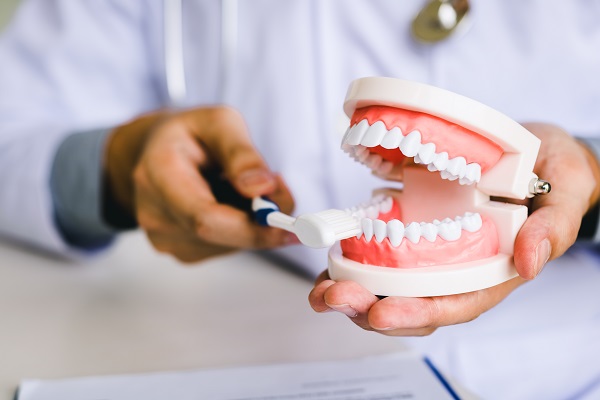Types of Teeth: Incisors, Canines, Premolars and Molars

You have probably noticed that certain teeth have a different shape than others, but have you ever wondered what the purpose is for the different types of teeth?
Teeth are much more than an aesthetic property; they serve a very important role in our ability to function normally on a day-to-day basis.
Different types of teeth
All of our teeth serve an important role, and it is crucial to take proper care of them in order to chew, bite and tear in a normal manner.
There are four different types of teeth: incisors, canines, premolars and molars.
Incisors
The incisors are the most visible teeth in the human mouth, as they are the group of teeth in the very front. In total, each person has eight incisors: four on the bottom row and four on the top row.
While incisors may seem insignificant and only there to aid in appearance, they are just as important as every other type of teeth in the mouth. Incisors' main functions include biting into food and helping to pronounce words. In addition, incisors also help support the lip as well.
Canines
Canines are the four sharper, pointed teeth on each side of the incisors. Canines are very similar to incisors in that they also help with biting and tearing food.
Additionally, canines help guide the mouth closed when the upper and lower jaw come together. Without canines, eating harder foods, such as meat and hard fruits and vegetables, becomes much more challenging.
Canines generally come through around the age of nine or ten years of age, and the lower canines usually come through before the upper canines.
Premolars
Premolars, or bicuspids, are located behind the canines and in front of the molars. There are a total of eight premolars, with four being located on the bottom row of teeth and four located on the top row of teeth.
Premolars' main purpose is to chew and crush food, and they are sometimes used for tearing as well. Additionally, premolars help keep the shape of the face, and the absence of premolars can lead to a change in one’s appearance.
Premolars are typically very strong and are capable of enduring a large amount of pressure.
Molars
There are also eight molars (four on the bottom and upper row of teeth). Molars are very strong and are located in the farthest back part of the mouth. The main purpose of molars is to chew and crush food, and they are essential to eating in a normal manner.
Third molars, otherwise known as wisdom teeth, are also considered to be molars, although many separate wisdom teeth into their own category.
Since molars are exposed to much more jaw pressure than other teeth, it is important to protect them properly by practicing good oral hygiene and wearing a mouthguard at night if grinding teeth while asleep is a problem.
Request an appointment here: https://www.kevinjdailydds.com or call Kevin J Daily DDS at (831) 580-1141 for an appointment in our Santa Cruz office.
Check out what others are saying about our services on Yelp: Read our Yelp reviews.
Recent Posts
Thinking about getting Lumineers® for the gaps between your teeth? Read on to learn about this cosmetic treatment. Having gaps between your teeth can make you feel self-conscious. The dentist can use custom-made Lumineers® to fill the gaps and improve your smile. Like veneers, Lumineers® is also used for treating an array of other cosmetic…
A broken dental crown is often a sudden issue. Dental crowns are permanent dental restorations. A crown may dislodge because of an injury, an accident, wear, or even old age. The dentist will determine if your crown needs repairs or a replacement. If you want to know what the dentist does to repair or replace…
Teeth whitening from a dentist, one of the most popular cosmetic dental treatments, offers a brighter smile in a short amount of time. After a whitening procedure, maintaining the results at home is key to keeping your smile vibrant. With good habits and professional guidance, you can maximize your investment in your radiant new smile.Compared…
If you are looking to replace several teeth due to decay, infections, disease, injury, or other loss, then you may be looking for your options for a dental implant. The good news is that these procedures have been done frequently, and therefore, a lot of knowledge is known about the process and what to expect.…


